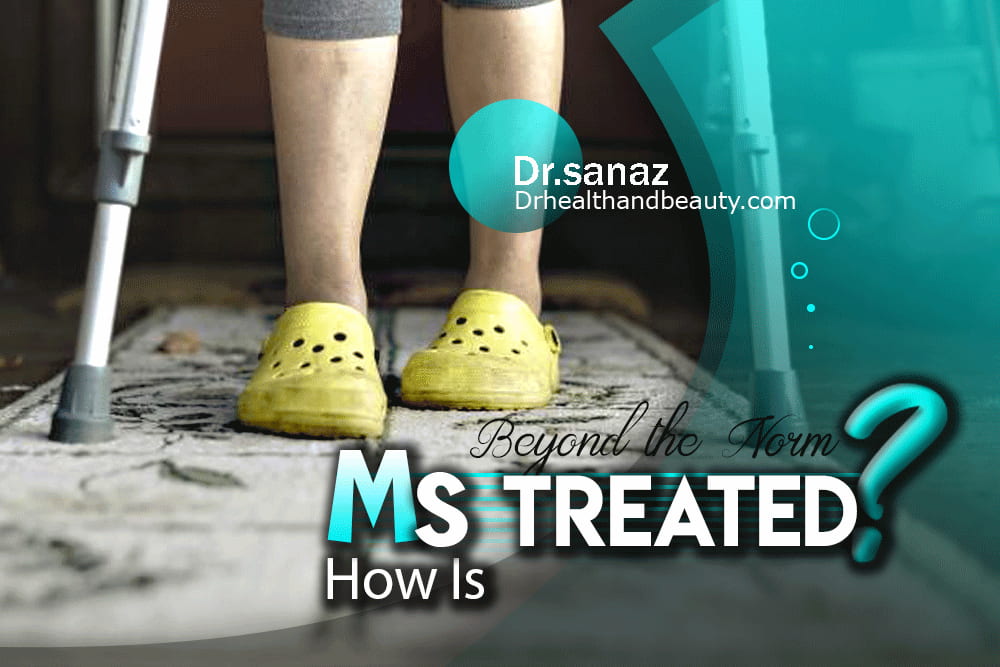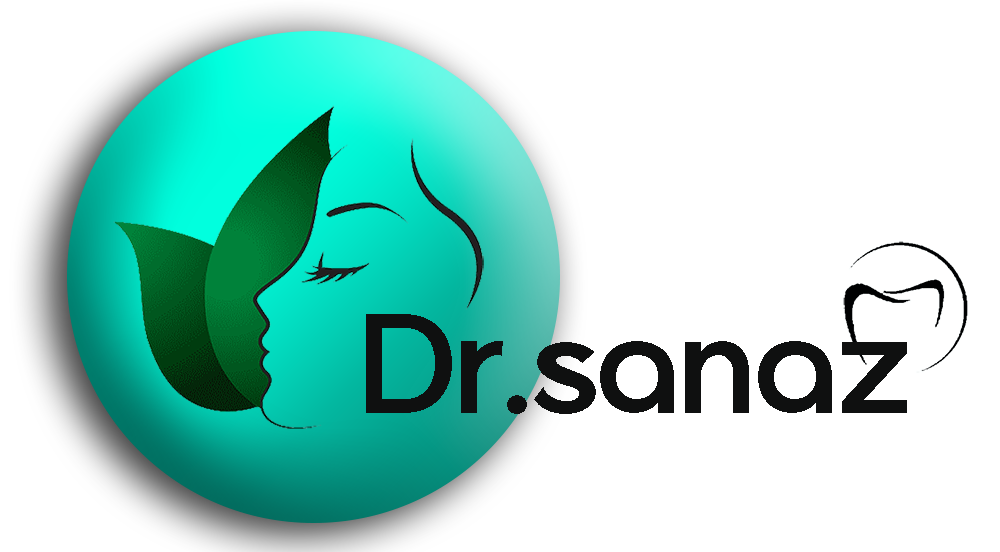

How Is MS Treated? Beyond the Norm
Table of Contents
The treatment of MS is a challenge for which no definitive treatment has yet been found. However, some treatments have been proven to be useful in speeding up recovery after attacks, slowing disease progression, and managing symptoms. In some people, the symptoms are so mild that no treatment is necessary. In a group, after an attack, the symptoms of the disease subside for a long time.
In this article from “drhealthandbeauty”, we will examine and provide the best solutions for the treatment of different stages of MS in order to be with you for the management of this disease.
Ways to treat MS
There is no definitive cure for MS. MS treatment usually focuses on speeding recovery after attacks, slowing disease progression, and managing symptoms. In some people, the symptoms are so mild that they do not need treatment.
Treatment of MS attacks
Corticosteroids: oral prednisone and intravenous methylprednisolone are used to reduce neuroinflammation. These drugs reduce the flare-ups of MS signs but do not slow the progression of the disease. Complications may include increased blood pressure, insomnia, increased blood sugar, mood swings, and fluid retention.
Plasma exchange (plasmapheresis): In this method of treating MS, the liquid part of the blood (plasma) is separated and removed from the blood cells. Then, the blood cells are mixed with a protein solution (albumin) and returned to the body. If MS symptoms have not responded to steroids, plasma exchange may be used.
Treatments that modify MS
There are several disease-modifying therapies (DMTs) for relapsing-remitting MS. Aggressive treatment of MS with these drugs can reduce the rate of relapse, the formation of new lesions and the risk of brain atrophy. Treatment options for relapsing-remitting MS include:
Injectable drugs to cure MS
- Interferon beta drugs: These drugs reduce the severity and frequency of relapses of MS. Side effects of interferons include flu-like symptoms (pain, fatigue, fever, and chills) and injection site reactions.
- Glatiramer Acetate for the treatment of MS: This drug helps prevent the immune system from attacking myelin. Skin irritation at the injection site is one of the side effects of glatiramer acetate.
- Monoclonal antibodies to cure MS: Ofatumumab targets B cells that damage the nervous system and prevent symptoms from worsening. Possible side effects include infection, local reaction to injection and headache.
Oral medications
- Triflunomide for MS: This once-daily oral medication reduces the rate of MS relapses. Triflunomide can cause liver damage, hair loss, nausea, and diarrhoea. In both women and men, the use of this drug is associated with birth defects. Therefore, you must use contraceptive methods while using it and for 2 years after stopping MS improvement.
- Dimethyl fumarate for the improvement of MS: This medicine is taken twice a day and reduces the relapse of MS. Side effects include flushing, diarrhoea, nausea, vomiting, stomach pain, and a decrease in the number of white blood cells.
- Diroximel Fumarate: Approved for relapsing forms of MS, this capsule is taken twice daily like dimethyl fumarate, but usually has fewer side effects. Possible side effects include flushing, itching, skin rash and indigestion.
- Monomethyl fumarate for MS improvement: This medicine is similar to dimethyl fumarate, and you should use it twice a day. The side effects of monomethyl fumarate include flushing, liver damage, abdominal pain, diarrhoea, nausea, and infection.
- Fingolimod for the improvement of MS: This once-daily oral medication reduces the rate of MS relapses. Because the drug may slow the heart rate, your doctor should monitor you for 6 hours after the first dose. Other side effects include rare serious infections, headaches, high blood pressure, blurred vision, diarrhoea, cough, back pain, and abnormal liver tests.
- Siponimod for the treatment of MS: This oral medication is taken once a day. Siponimod can reduce the rate of MS relapses and help slow the progression of MS. Possible side effects include viral infections, liver problems, low white blood cell count, heart rate changes, headaches, and vision problems. Siponimod is harmful to the fetus. Therefore, women who may become pregnant should use contraceptive methods while taking it and for 10 days after stopping the drug.
- Ozanimod for the treatment of MS: This oral drug reduces the relapse rate of MS and is given once a day. Increased blood pressure, infection, inflammation of the liver, dizziness and headache are possible side effects. If you have liver or heart problems, you should not use this medicine.
- Ponsimod for the treatment of MS: This oral medication is taken once a day and prevents immune system cells (lymphocytes) from attacking the nerves in the brain and spinal cord. Possible side effects include respiratory tract infections, high blood pressure, liver irritation, and electrical problems in the heart that affect the heart’s beat and rhythm.
- Cladribine for the treatment of MS: This drug is used as a second-line improvement for patients with relapsing-remitting MS. Side effects include headaches, upper respiratory tract infections, and a decrease in white blood cells. People with active chronic infections or cancer, as well as pregnant or lactating women, should not use this medicine. Men and women should use contraception while taking cladribine and for 6 months after stopping treatment for MS.
Medicines that are administered by infusion (drip and slow injection) to cure MS
- Natalizumab to cure MS: This drug prevents harmful immune cells from reaching the brain and spinal cord. In some people, natalizumab increases the risk of developing a potentially serious viral infection of the brain called progressive multifocal leukoencephalopathy (PML).
- Ocrelizumab for the improvement of MS: This drug prevents the body’s immune system from attacking healthy tissues and reduces the rate of MS relapses. Side effects include low blood pressure, injection site irritation, fever, nausea, etc. Some people, including those with hepatitis B infection, may not be able to take ocrelizumab. This drug can increase the risk of some types of cancer, especially breast cancer and infections.
- Alemtuzumab to cure MS: This drug helps reduce MS relapses by targeting proteins on the surface of immune cells and reducing white blood cells. As a result, it can limit the risk of nerve damage caused by white blood cells. However, it increases the possibility of infections and autoimmune disorders, including autoimmune thyroid diseases.
The latest MS treatment
- Bruton tyrosine kinase (BTK) inhibitors are an emerging modality being studied for the treatment of relapsing-remitting MS, and secondary progressive MS. This drug works by modulating B cells, which are immune cells in the central nervous system.
- Another solution that is recommended is the improvement of MS through stem cells. A stem cell transplant destroys the immune system of a person with multiple sclerosis and then replaces it with transplanted healthy stem cells. Researchers are still investigating whether this method can reduce inflammation in MS patients. Fever and infection are side effects of stem cell transplantation.
Treating the signs and symptoms of MS
Your doctor may recommend treatments for:
- improvement of muscle stiffness and spasms in MS: muscle relaxants such as baclofen and tizanidine and sedatives such as clonazepam and diazepam
- Treatment of fatigue in MS: amantadine, armudafinil and modafinil
- improvement of depression in MS: antidepressants such as bupropion, fluoxetine and sertraline
- Treatment of bladder problems in MS: oxybutynin or tolterodine
.
They may also suggest physical therapy. A physical therapist will teach you some exercises to help you stay active. Additionally, it teaches you how to use a walker, cane, or other assistive device to get around more easily.
Change life to change the future
To help control the signs and symptoms of MS, you should:
- Get enough rest.
- Eat a healthy diet and eat foods that are low in saturated fat and high in fibre.
- Exercise after consulting your doctor.
- Learn ways to manage stress.
- Keep your body cool, as an increase in body temperature can make MS symptoms worse.
.
Current research suggests that the following solutions are worth trying:
- Taking vitamin D supplements to cure MS: Vitamin D deficiency increases the chance of developing MS. Ask your doctor to check your vitamin D levels.
- Acupuncture for MS: Research on treating MS with acupuncture has shown that it can help reduce MS symptoms such as fatigue, pain, spasms, numbness, tingling, and bladder problems, as well as improve mood.
.
These days, there is a lot of hype about treating MS with frankincense, curing MS with nettle, treating MS with honey, treating MS with garlic, and more. Because any food, supplement, or product may alter the effectiveness of your medications, do not use them without consulting your doctor.
Conclusion
MS is an autoimmune disease in which many problems arise for the nervous system. As a result, the progression of MS itself is one of the most effective factors in treating MS and should be considered in the treatment process.
A very important point that should be noted is that the pressure and stress caused by life in the modern world can be one of the known factors for MS. Therefore, it is recommended to protect yourself against these types of diseases by changing your lifestyle.
However, the good news that can help you reduce your worry is that with the comprehensive guidelines of this article, you will be able to manage this disease in its various stages and hope that scientists will not sit idle to find the best treatment option.

